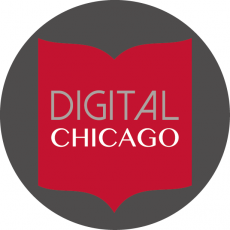Digital Chicago grant concludes

In December 2018, Digital Chicago: Unearthing History and Culture, Lake Forest College’s generous $800,000 grant from The Andrew W. Mellon Foundation, came to its formal conclusion.
Starting in 2015, and over the course of its four years, Digital Chicago involved students and faculty in research into Chicago’s history through innovative digital projects, urban archaeological digs and complementary coursework in a wide range of disciplines. The grant supported the work of 20 Chicago Fellows faculty and incorporated 22 projects onto its official project website.
With the conclusion of the grant, the Digital Chicago project website will be transferred to a permanent institutional home with the Chicago History Museum, which has agreed to incorporate the site into its Online Exhibitions.
“Lake Forest College and the Chicago History Museum have been in conversation for several years about our shared interest in using digital tools to present Chicago’s history,” says Davis Schneiderman, Director of Digital Chicago and Krebs Provost and Dean of the Faculty at Lake Forest College. “We’re excited about this collaboration that ensures these fascinating history projects can be shared widely.”
For the past five years, the Chicago History Museum has been developing a host of accessible digital experiences with Chicago history including the platform, www.chicago00.org. The Chicago00 program was designed to create mobile, immersive, and interactive experiences with Chicago’s history using virtual reality, 360° videography, and augmented reality experiences to explore the city’s amazing story through the museum’s unique and expansive collections. According to John Russick, Vice President for Interpretation and Education, “the Digital Chicago projects had similar goals, which aligned beautifully with the Museum’s digital ambitions. Featuring all of these projects on the Chicago History Museum’s website provides a dynamic library of digital encounters with Chicago history unlike any other.”
On campus, the Digital Chicago grant spurred the creation of our InnovationSpaces,including a MakerSpace and a VirtualSpace for the educational use and development of VR applications. Chicago Fellows faculty worked with more than 40 student research assistants, and sponsored over thirty courses over four years, which touched the educational experiences of more than 450 student
Starting in 2015, and over the course of its four years, Digital Chicago involved students and faculty in research into Chicago’s history through innovative digital projects, urban archaeological digs and complementary coursework in a wide range of disciplines. The grant supported the work of 20 Chicago Fellows faculty and incorporated 22 projects onto its official project website.
With the conclusion of the grant, the Digital Chicago project website will be transferred to a permanent institutional home with the Chicago History Museum, which has agreed to incorporate the site into its Online Exhibitions.
“Lake Forest College and the Chicago History Museum have been in conversation for several years about our shared interest in using digital tools to present Chicago’s history,” says Davis Schneiderman, Director of Digital Chicago and Krebs Provost and Dean of the Faculty at Lake Forest College. “We’re excited about this collaboration that ensures these fascinating history projects can be shared widely.”
For the past five years, the Chicago History Museum has been developing a host of accessible digital experiences with Chicago history including the platform, www.chicago00.org. The Chicago00 program was designed to create mobile, immersive, and interactive experiences with Chicago’s history using virtual reality, 360° videography, and augmented reality experiences to explore the city’s amazing story through the museum’s unique and expansive collections. According to John Russick, Vice President for Interpretation and Education, “the Digital Chicago projects had similar goals, which aligned beautifully with the Museum’s digital ambitions. Featuring all of these projects on the Chicago History Museum’s website provides a dynamic library of digital encounters with Chicago history unlike any other.”
On campus, the Digital Chicago grant spurred the creation of our InnovationSpaces,including a MakerSpace and a VirtualSpace for the educational use and development of VR applications. Chicago Fellows faculty worked with more than 40 student research assistants, and sponsored over thirty courses over four years, which touched the educational experiences of more than 450 students.
During the Fall 2019 semester, Rebecca Graff, assistant professor of anthropology, will lead excavations on the South Campus of Lake Forest College for students taking SOAN 215, Archaeological Field Methods. This project aims to identify archaeological materials associated with Lake Forest’s African Methodist Episcopal Church. Established in 1866 and constructed in 1870, the Church served as a place of worship for African American citizens until the 1920s, after which the wooden structure was moved across the street to house an infirmary for Lake Forest Academy. By excavating at the site, Graff hopes to unearth further information about and awareness of the past and present African American communities of the North Shore and Chicago.